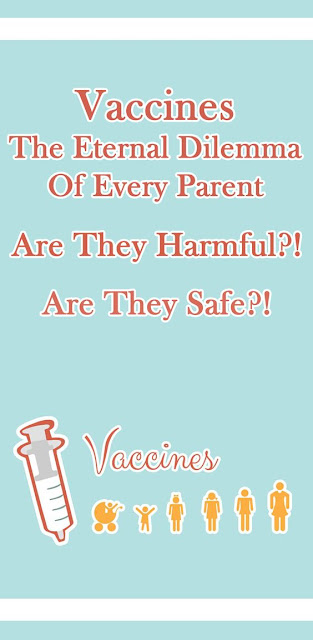Vaccines: Are They Safe? Are they effective? These are issues that go on for a very long time and create confusion among many parents.
 |
| Credit:openlifecommunity.net |
Dr. Miller examines the vaccines for three decades and wrote several books on the subject, including “Vaccines: Are They Really Safe and Effective?” “A Guide to the Safety of Vaccines for Affected Families” and, most recently, “Miller Review of Critical Vaccines Studies: 400 important scientific papers summarized for parents and researchers. ”
Uninformed decision-making is part of the problem
In the end, each parent will decide whether or not to vaccinate the child. The problem is, in most cases, the lack of information.
A question raised in some of his previous books is that there has been a deliberate misinformation campaign aimed at convincing you that vaccines are much more effective than they actually are.
For example, disease incidence data are used to suggest that vaccines dramatically reduce the incidence of a particular disease, when in fact the disease rate has already decreased by 90 percent or more in some cases before the vaccine is available.
Smallpox is problematic for developing countries, mainly due to malnutrition, vitamin A deficiency, lack of clean water, sanitation and rapid access to medical care. Given these measures, measles mortality is reduced independently.
Many childhood diseases serve as protection against cancer
Another noteworthy point is that there are dozens of studies showing that certain childhood diseases actually protect against various types of cancer later in life – everything from melanoma to leukemia.
It is important to realize that when you have a naturally acquired infection, you strengthen your immune system quite deeply, developing an authentic life-long immunity in the process that is radically different from the type of artificial and temporary immunity you receive from the vaccine.
Vaccines create problematic mutations
Another vaccine-related problem, which many are not aware of, is the fact that vaccines cause mutations in disease-carrying organisms, much like antibiotics causing bacterial mutations.
For example, diphtheria, tetanus, and pertussis (DTaP) vaccine caused the pertussis microorganism, Bordetella pertussis, to mutate and avoid the vaccine. The same happened with pneumococcal vaccine and Haemophilus influenza type B vaccine.
Tragically, parents are blamed for many of these vaccine failures. It is told to parents that if you do not vaccinate their children, you are responsible for the spread of the disease. It is the idea of promoting the medical industry and the pharmaceutical industry.
However, if you actually read the studies, you will find what scientists know – the real problem is an evolutionary adaptation. Dr. Merrill Nas explained the issue in the interview in 2017. Microorganisms are adapted.
Immunity cannot be achieved through immunization
Another basic argument for mass vaccination is the achievement of herd immunity. Miller believes, and I agree with this belief that herd immunity can never be achieved through vaccination since high rates of vaccination encourage the evolution of more severe disease-causing agents.
In the vaccinated population, virulence increases due to selective pressure, because the pathogen is strengthened and adapted to the fight for survival against the vaccine.
Meanwhile, in an unvaccinated population, the environment actually promotes reduced virulence, since the pathogen does not want to kill its host.
The wise pathogen is one that is capable of infecting many hosts without killing them because when the host lives, the pathogen loses the environment on which its survival depends.
Studies show that the infant mortality rate increases as a result of vaccination
One of the principles of conventional medicine is that if you vaccinate the population, everyone will be healthier. There will be fewer diseases. But when you compare the rates of vaccination and health statistics, you will find that the opposite is actually true. This is one of Dr. Miller’s most popular information in his book.
For example, when comparing vaccination rates in 34 developed countries, they found a significant correlation between infant mortality rates and the number of vaccinated infant doses. Developed countries like the United States that need most vaccines have the highest infant mortality rates.
0 comments so far,add yours